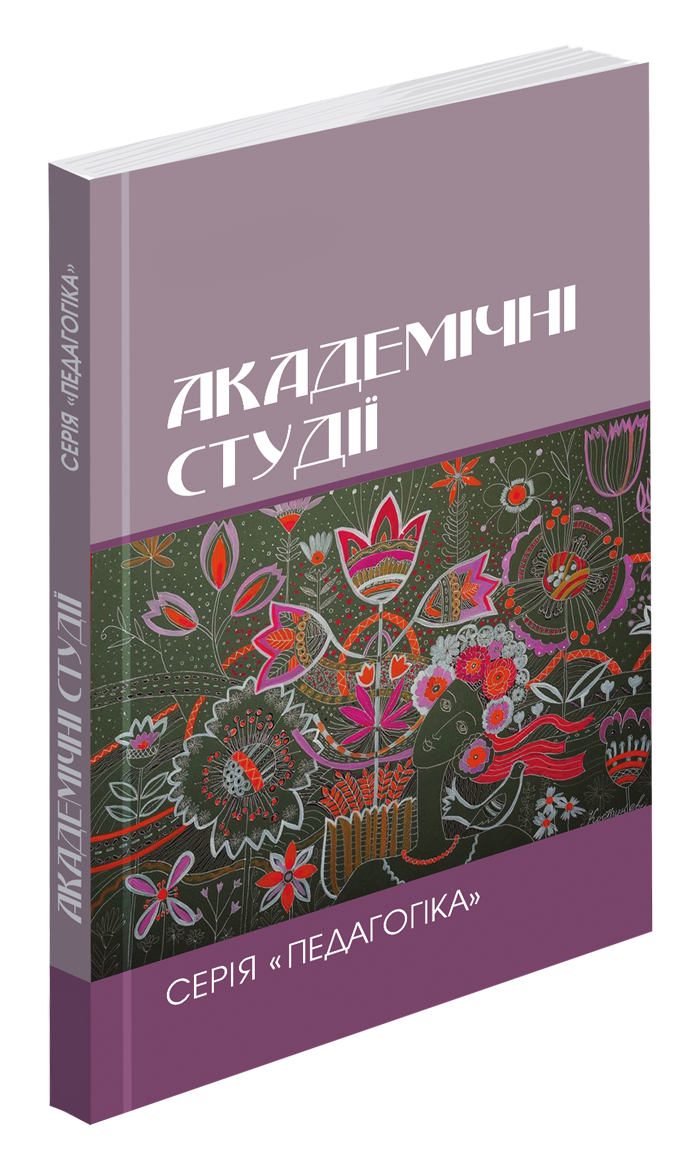Abstract
The purpose of the article is to study the peculiarities of teaching a foreign language for professional purposes to students of non-linguistic specialities of higher education institutions. It has been determined that in order to improve the quality of national education, one of the leading tasks of professional training of students is the formation of a competitive specialist, in particular, the formation of his/her foreign communicative competence. The issues of studying the discipline “Foreign language for professional purposes” are considered. The competences that form the basis of the necessary competences of students of non-linguistic specialities of higher education institutions are described. The tasks for the realisation of the goal are defined. It is noted that this discipline has specific features and characteristics, namely: lexical base, professional terminology, business correspondence, communication tasks, reading texts and listening tasks. It has been proved that the effectiveness of teaching a foreign language for professional purposes can be achieved if students are involved in the process of active independent and creative learning activities. It is noted that the essence of professionally oriented foreign language learning is its integration with special disciplines. Such modern methodsand approaches to teaching as communicative-interactive, personality-oriented approaches are analysed, with the project method and the principle of situationality being popular components. The authors emphasise that the professional foreign language orientation is due to the need for future specialists to use the scientific knowledge acquired during their studies in their professional activities with the help of a foreign language. The article concludes with conclusions and prospects for further research.
References
Баб’як Ж. Використання матеріалів на заняттях ESP: Автентичні завдання чи традиційні підручники / Ж. Баб’як, Л. Джиджора, О. Перенчук. Освітні обрії. 2019. № 1(48). С. 12–16.
Канюк, О. (2020). Особливості викладання англійської мови для студентів немовних спеціальностей. Український Педагогічний журнал, (2), 117–122. https://doi.org/10.32405/2411-1317-2020-2-117-122
Коваль Л. М. Формування у студентів немовних вищих навчальних закладів англомовної професійно орієнтованої мовної компетенції. Науковий вісник НЛТУ України. 2010. Вип. 20. 4. С. 318–321.
Костик Є. В., Сілютіна І. О. Особливості викладання іноземної мови професійного спрямування для студентів немовних спеціальностей. Актуальні проблеми філології та перекладознавства. 2022. № 23. С. 38–43.
Куліш І. М. (а) До проблеми розробки програм з іноземної мови професійного спрямування у світлі новацій в освітньому процесі України. Лінгвістична підготовка студентів нефілологічних спеціальностей закладів вищої освіти у контексті Болонського процесу та Загальноєвропейських Рекомендацій з вивчення, викладання та оцінювання мов : матер. ІХ Міжнар. наук.-метод. конф. (4–5 жовтня 2018 р.). Одеса : Бондаренко М. О., 2018. С. 171–173.
Куліш І. М. (b) До проблеми оцінювання навчальної діяльності здобувачів вищої освіти з іноземної мови професійного спрямування. Проблеми мовної особистості: лінгвістика та лінгводидактика : матер. ІV Міжнар. наук.- практ. конф. (18–20 жовтня 2018 р.). Черкаси, 2018. С. 171–176.
Орлова Н. Навчання іноземної мови професійного спрямування студентів немовних спеціальностей закладів вищої освіти: багатогранність і комплексність наповнення концепту. Актуальні питання гуманітарних наук : міжвузівський збірник наукових праць молодих вчених Дрогобицького державного педагогічного університету імені Івана Франка. Дрогобич, 2019. Вип. 23. Том 3. С. 93–99.
Шевченко С. П. Застосування інтерактивних методів у процесі викладання курсу професійної англійської мови. Молодий вчений. 2020. № 4. С. 481–483.
B. Harville. “How to Successfully Teach 5 Common Types of English for Specific Purposes Classes”. Accessed on: Feb 25, 2020. [Online]. Available: https://www.fluentu.com/blog/educator-english/ teaching-english-for-specificpurposes/
Fiorito, L. (2019). Teaching English for Specific Purposes (ESP). Accessed on: Feb 25, 2020. [Online]. Available: https://www.usingenglish.com/articles/teaching-english-for-specific-purposes-esp.html
Lobanova, S., Kovalchuk O., Melnychuk O., Zabiiaka I., Alyieva A., Kanonik N. (2023). Formation of Lexical Competence in Applicants for Education at Distance Learning (Experience of Foreign Scientists). World Journal of English Language, Sciedu Press, vol. 13(4), pages 1–49.

